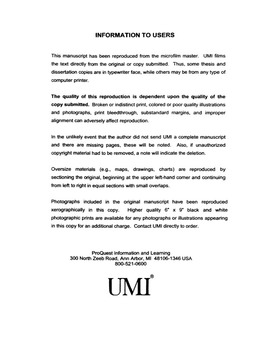| dc.contributor.advisor | Fox, Robert, | en_US |
| dc.contributor.author | Di Vito-thomas, Pamela Allyn. | en_US |
| dc.date.accessioned | 2013-08-16T12:18:31Z | |
| dc.date.available | 2013-08-16T12:18:31Z | |
| dc.date.issued | 2002 | en_US |
| dc.identifier.uri | https://hdl.handle.net/11244/438 | |
| dc.description.abstract | The changing health care system, the nature of patient problems, and the movement of patient care from acute care facilities to diverse community settings has increased the demand for competent, professional nurses who are capable of thinking critically. The quality of thinking has become crucial for nursing practice because critical thinking is becoming the benchmark of professional competence and student performance. Therefore, the purpose of this study was to investigate the relationship between nursing student performance and critical thinking in clinical judgment among baccalaureate nursing students, and to describe the teaching/learning strategies that facilitate the development of critical thinking in clinical judgment. The research design included a mixed methodology of a quantitative causal-comparative design, and a qualitative constant-comparative design. The sample participants consisted of baccalaureate nursing students (n = 134). The instruments used in this study to collect quantitative data included the Adapted Six-Dimensional Scale of Nursing Performance (6-D) (1978), and the PDT Critical Thinking in Clinical Judgment Scale (PDT) (2000). The Pearson product-moment correlation indicated that the relationship between nursing student performance and critical thinking in clinical judgment was significant, r = 0.732, alpha = 0.01 (2-tailed). A concise explanation of the critical thinking process, and appeal to baccalaureate nursing curricula is well articulated in the following extraction from the data, "the broader way of thinking is learned by working in the field, and it has become clear that education is essential as a first step, but education without experience lessens the capacity for an individual to think critically in a situation where lives are at stake. Education and experience must go hand in hand, so that the knowledge learned in the classroom becomes second-nature in practice. Clinical experience is the most important learning strategy in clinical judgment. You cannot learn that skill from a book." | en_US |
| dc.format.extent | xi, 124 leaves ; | en_US |
| dc.subject | Nursing Study and teaching. | en_US |
| dc.subject | Health Sciences, Nursing. | en_US |
| dc.subject | Nursing assessment. | en_US |
| dc.subject | Health Sciences, Education. | en_US |
| dc.subject | Education, Philosophy of. | en_US |
| dc.subject | Critical thinking. | en_US |
| dc.subject | Nursing students. | en_US |
| dc.title | The relationship between nursing student performance and critical thinking in clinical judgment. | en_US |
| dc.type | Thesis | en_US |
| dc.thesis.degree | Ph.D. | en_US |
| dc.thesis.degreeDiscipline | Department of Educational Leadership and Policy Studies | en_US |
| dc.note | Major Professor: Robert Fox. | en_US |
| dc.note | Source: Dissertation Abstracts International, Volume: 63-02, Section: B, page: 0721. | en_US |
| ou.identifier | (UMI)AAI3042507 | en_US |
| ou.group | Jeannine Rainbolt College of Education::Department of Educational Leadership and Policy Studies | |
